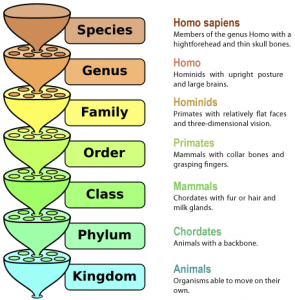Humans and chimpanzees are genetically similar. Some estimate the similarity at 98%. Others slightly less. A lot of ink has been spilt regarding this issue. See here, here, here, here, and here for just a few examples of the thousands of articles that have been written on the subject. What is all the fuss about? It seems to me that much of the fuss is accounted for by the fact that whether they are in the ID or the creationist camp, many theists have an adverse visceral reaction to the data, and for that reason they work very hard to discredit or downplay it. I once felt this way. But as John Adams famously said, “Facts are stubborn things; and whatever may be our wishes, our inclinations, or the dictates of our passion, they cannot alter the state of facts and evidence.”
The stubborn fact of the matter is that human bodies are very similar to chimpanzee bodies both morphologically and genetically. I have made peace with that fact, and to my theist friends who find the data troubling, I say calm down. Yes, you have an animal body that is more or less similar to the bodies of other animals. That your body is more similar to some animals – and in the case of the chimpanzee very similar indeed – is a fact of no great theological consequence, because you are not your body. Even if we were 99.999999999999% similar both genetically and morphologically to chimpanzees, it would not matter, because it is the difference that counts, and that difference is not a material difference. The difference is spiritual in nature, and because it is spiritual in nature material comparisons are not just misleading; they are completely irrelevant.
Paul wrote to his friends at Corinth: “I say, and prefer rather to be absent from the body and to be at home with the Lord.” II Cor. 5:8. Who was going to be present with the Lord when Paul was absent from his body? Why, Paul of course. Paul understood that he, Paul, transcended his physical body, and one day he would be separated from that body. This dualism is nowhere more apparent than in Paul’s discussion of the never-ending war being waged within:
I joyfully concur with the law of God in the inner man, but I see a different law in the members of my body, waging war against the law of my mind and making me a prisoner of the law of sin which is in my members. Wretched man that I am! Who will set me free from the body of this death?
Romans 8:22-24.
I am not here arguing for any particular theory of how this dualism works out, such as Cartesian substance dualism or hylomorphism. My point is that scripture clearly teaches a distinction between body and spirit, and it is the spirit, not the body, that is of particular (indeed, eternal) consequence. Nor does the fact that I am conceding the similarity between the human body and the chimpanzee body mean I have conceded anything important to the materialists. I have an animal body. So what? Whoever said I didn’t? This does not necessarily imply common descent, much less Darwinian evolution. For purposes of the present discussion I am merely stating the obvious: I have an animal body, the Linnean taxonomic classification of which is:
As a theist (especially a Christian theist), I am not troubled by the fact that I have an animal body. Yes, I am an animal, but I am not merely an animal. I have an eternal spirit, and that makes all the difference in the world.